TAKE 10 WITH NICHOLAS ARCANGELI
Nicholas Arcangeli usually works out of QuarryHouse Atelier Verona along with his father, Eugenio. The master carver came to the Richmond facility seven months ago to finish the carved stone fountains he started in Italy for a Renaissance-style mansion in San Francisco. Sequestered in the Bay Area because of the Pandemic, he stayed with Ed and Missy Westbrook, who enjoyed his cooking and conversation. We caught up with Nicholas before his return to Verona.
QH: You come from seven generations of stone quarrying and fabrication. What was it like growing up in such an ancient craft?
NA: I was not cognizant of the history until later, and by that point, I was pursuing a career in teenage stupidity. In retrospect, the stone culture was everywhere, from homemade marble countertops, the stone flooring we put in, the first stone table I made while young; I hope no one bought that. The funny thing is I thought everyone lived like we did, with the ability to put stone flooring, tiles, etc.; I discovered later that most people don't modify their own homes with stone by hand. I do this even now; if something needs fixing or needs to be changed, I start thinking of which piece of random stone laying around I could use that would look nice.
QH: What is your favorite stone to work with?
NA: Stone is like music; different types serve different purposes; one wouldn't play death metal to put a toddler to sleep, the same for stone. It's hard to say which is my favorite without knowing what it is for, for figure sculpture, Carrara, or other similar marbles from Greece such as Parian, and even Tala, though not technically marble. I like Istrian marble, and if I were to build my house, it would be out of Istrian, though not only Istrian. It's like trying to choose my favorite note on a piano. A single note is meaningless but put together with know-how, and we have music that pulls at our emotions.
The Winged Victory of Samothrace, made of Parian marble (c. 220–190 BC)
QH: Your family-owned quarries in Rosso Verona and Biancone extract. Did you visit these as a child?
NA: Sadly no, not that I can remember. I've only ever visited one of the old closed quarries as an adult while going on walks.
QH: Do you prefer traditional or modern design?
NA: That depends on the definition of traditional and modern. You can have something traditional and modern. I see tradition as the backbone, the foundation on which everything else is built. What we call traditional is nothing more than the principles of proportion, balance, harmony. These principles can be applied to modern design too. I think where modern design runs into problems is when these principles are unknown or ignored. The result is a disjointed, nonsensical monstrosity known as The McMansion.
QH: What has been the most challenging project you have worked on?
NA: I would have to say the current project I am working on; it's complicated, with many small details to get right, and we are trying new techniques involving structural glass. It will truly be one of a kind.
QH: Because of travel restrictions, you were sequestered in the San Francisco Bay Area and are now returning to Verona. What did you miss most?
NA: When I'm here, I miss Italy. When I'm in Italy, I miss being over here. The thing I miss most is the warmth of the people. You can go to a bar before you know it, you're going out to eat with people you just met. They are very friendly.
QH: What’s your wake-up ritual?
NA: Well, aside from the usual, get up, brush teeth, get dressed. I'll chat with whoever happens to be in the kitchen while I drink my Italian coffee made with a Moka. Usually, we talk about politics or the market, other times about the inconsequential stupidities of the world. Then it's off to work.
Bialetti Moka Pot 1933
QH: How do you maintain a work/life balance?
NA: Easy, 1 kg labeled work, another 1 kg labeled life, and it's in perfect balance. Through these past few years, I've misplaced the one labeled life.
QH: What are three things you can’t live without?
NA: Books, I cannot imagine an existence without books, family, and adventure.
QH: How would you define your work in three words?
NA: Passion, challenging, unobtainable.



